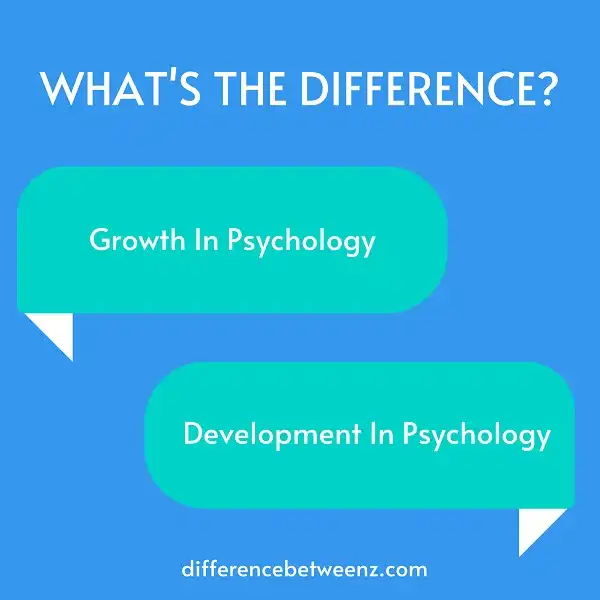What is the difference between growth and development in psychology? This is a question that is often asked by students but can be difficult to answer. In short, growth refers to an increase in size or quantity, while development refers to a process of change or progress. However, this definition does not cover all aspects of the two concepts. In this blog post, we will explore the differences between growth and development in more depth. We will also discuss how these concepts are related to one another.
What is Growth In Psychology?
Growth in psychology refers to positive changes in psychological states and traits. Growth can occur in response to positive life events, such as getting married or having a baby, or it can occur spontaneously in the absence of any major life event. Either way, growth is typically associated with increased happiness and well-being. In some cases, growth can also involve the acquisition of new skills or knowledge. For example, someone who starts a new job might experience a period of growth as they learn about their new role and responsibilities. Ultimately, growth is a key part of what makes us human beings – it’s what allows us to adapt and thrive in the face of change.
What is Development In Psychology?
Development in psychology refers to the lifelong process of physical, cognitive, and social development. Development begins at birth and continues throughout the lifespan.
- Development is influenced by both nature (i.e., biological factors) and nurture (i.e., environmental factors). Development is a complex process that is difficult to study because it involves many different variables.
- Developmental psychologists often use research methodology to study developmental processes. Developmental psychologists also work in clinical settings to help people with developmental disabilities.
- Developmental psychology is a scientific field that is constantly evolving as new research is conducted. Developmental psychologists play an important role in our understanding of human development.
Differences between Growth and Development In Psychology
Growth and development are often used interchangeably in psychology, but there are some important distinctions between the two. Growth refers to positive changes in physical, cognitive, and social functioning.
- Development, on the other hand, encompasses both positive and negative changes. Growth is typically seen as a sign of progress, while development includes both growth and decline.
- For example, a child who is gaining weight and learning to talk is experiencing growth, while a teenager who is experiencing mood swings and rebel against the authority is going through development.
- While growth is often seen as something to be encouraged, development must also be recognized as an essential part of human life. Without development, we would never change or adapt to our environment, and we would never reach our full potential.
Conclusion
Differences between Growth and Development In Psychology. Although growth and development may seem like similar processes, they are actually quite different. This is most clearly seen in the different ages at which each process begins and ends. Growth refers to an increase in size, while development refers to a change in function or structure. As we’ve seen throughout this post, there are many things that influence both growth and development, from nature to nurture. The better you understand these two concepts, the more effectively you can help your clients or students grow and develop into healthy adults.


